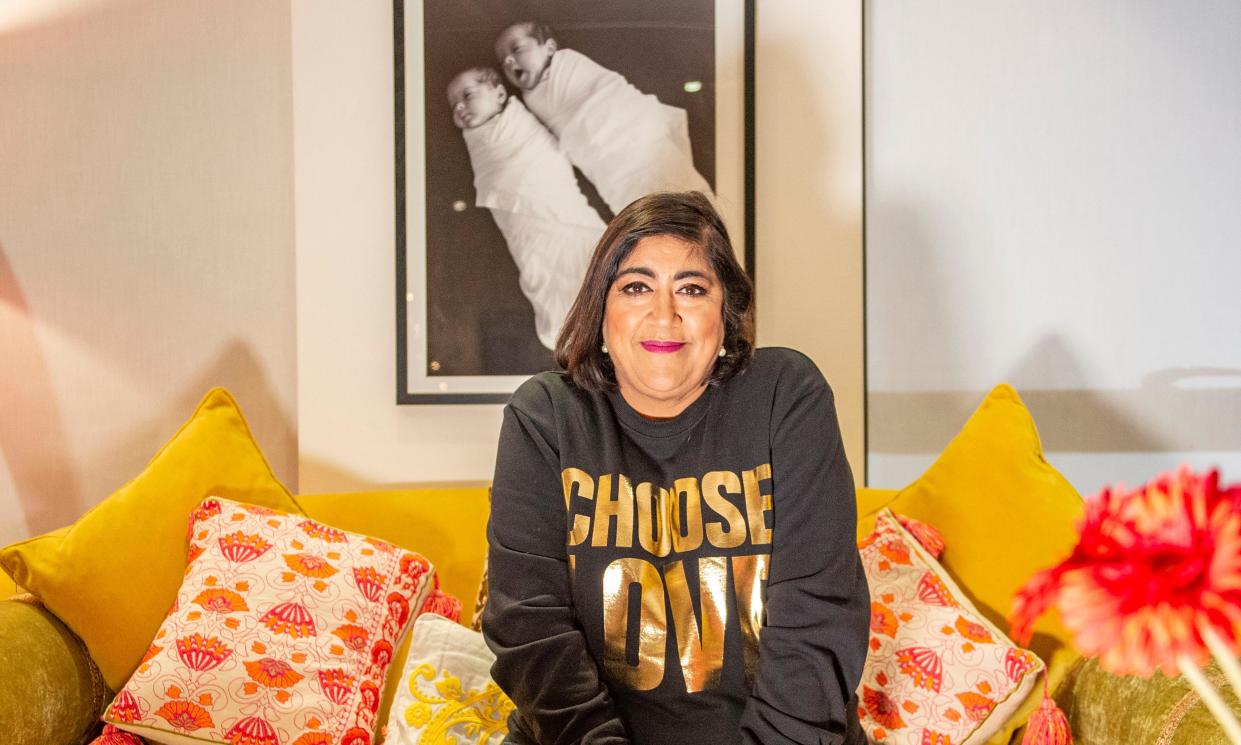Gurinder Chadha: ‘I’ve carved out a whole career by celebrating difference’

I wear the scars of the immigrant experience, marked on my forehead forever. I was two when we arrived in England from Kenya, our family rented a single bedroom in London. When our landlord’s son pushed me face-first into a metal bed frame, I cried and cried; mum was devastated but couldn’t say anything. I still remember the indignity and injustice.
I ran away from home aged 10, for all of 45 minutes. I packed a box with knickers and baked beans, barely making it down the road before returning. I loved Enid Blyton books back then; I think this “escape” was an attempt to be more British. It’s why I refused to eat Indian food for a while, taking jam and butter on my chapatis.
People might tell you that you’re the odd one out. Remember you’re not, you too are the mainstream. The world might try to make differences a pejorative thing, but I’ve carved out a whole career by celebrating it.
The film Bend It Like Beckham was a watershed. Until then, the perception was that Indian girls in the UK were obeying and submissive to strict families. But that wasn’t our experience. As an immigrant kid, you realise early on you and your parents live different realities. You can fight and rebel, or accept your parents for who they are, work around them, and get on with it. That’s what we did.
Journalism wasn’t for me. I realised that when I was sent to cover some Travellers arriving in Birmingham. I was struck by their generosity and the beauty of their caravans, so I wrote a lovely article. My editor ripped it up and went with GYPSIES DESCEND ON CITY. It was a watershed moment – I needed control of my own stories.
It took me three years to get Bend It Like Beckham green-lit. Everyone said audiences wouldn’t be interested in an Indian girl playing football. It came out 20 years ago – and it’s still the only film in the world to have been distributed in every single country. For people on the margins all over, it was transformative.
If you betray me, we’ll never be friends again, or work together professionally. I struggle to give people second chances, which is no good thing. That’s just being a Capricorn.
I regret not having kids younger. I believed starting a family as a woman would hinder my career, so I put it off repeatedly. In my late 40s, I became pregnant with twins. It wasn’t game over at work – starting a family enhanced it. If you want children, don’t be forced into delays. I’ll be old if and when my kids get married, or grandchildren appear. And honestly? That saddens me.
Dad died suddenly in 1999, and he never got to see my biggest achievements. It meant for a long time I never appreciated my success: he wasn’t there to share in it, so it didn’t feel real. Having my children celebrate my work has seen something shift within me. Finally, I’ve started to let myself believe it.
Queen Victoria and the British Maharaja is on All 4

 Yahoo Movies
Yahoo Movies 
